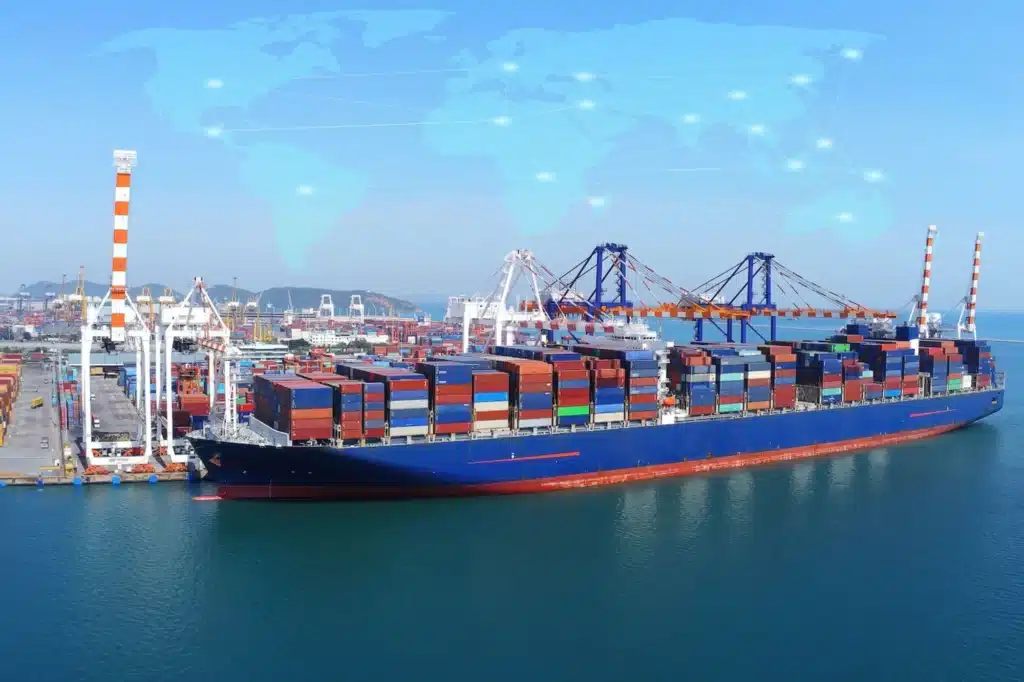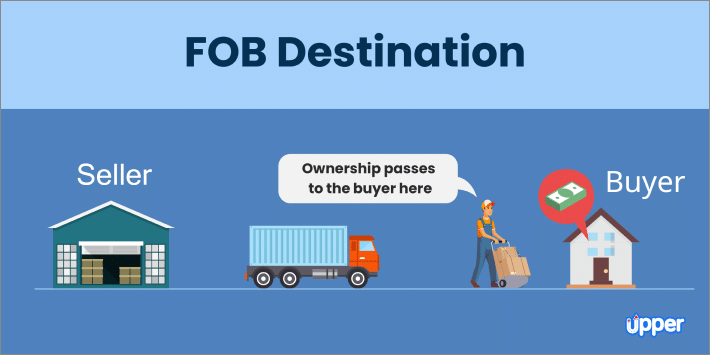When shipping goods from China to New Zealand, the two primary transportation methods are sea and air freight. Sea freight is a cost-effective option for large or bulk shipments, while air freight provides faster delivery times for time-sensitive cargo.
This guide offers a detailed analysis of both transportation options, breaks down their associated costs, and highlights key factors importers should consider when choosing the right shipping solution. It also provides practical tips for optimizing transportation costs and improving supply chain efficiency.

Basic Cost Overview of Shipping from China to New Zealand
The cost of shipping goods from China to New Zealand varies depending on many factors. Common costs mainly include:
- International freight (sea/air)
- Customs declaration and clearance fees
- Insurance costs (optional)
- Miscellaneous charges and tariffs at the port of destination
- Warehousing and distribution costs
- Additional costs (such as peak season surcharges, fuel surcharges, etc.)
- Different modes of transportation and service types (such as DDP, DAP, FOB) will result in large differences in overall costs.
Shipping from China to New Zealand
Sea freight from China to New Zealand
When you choose ocean transportation as your mode of transportation from China, you can choose between FCL and LCL. Therefore, it is crucial to understand the characteristics of FCL and LCL.
The first is FCL. FCL has obvious advantages in terms of flexibility and freedom. Since the seller has a container space, the seller can pack the goods according to his needs. At the same time, the seller can freely arrange the loading and unloading time of the goods, avoiding the time coordination problems caused by sharing containers with other sellers. This flexibility enables sellers to better control the shipping time and improve the efficiency of supply chain management.
Air freight from China to New Zealand
Air freight is much faster than sea freight. Goods can usually reach their destination within a few days. Air freight is very suitable for customers with urgent needs. Air freight flights are frequent and the time is controllable. Shippers can flexibly adjust the transportation plan according to demand. Air freight is suitable for small and light goods.

Factors Affecting Shipping Cost from China to New Zealand
Ocean freight quotes typically specify whether the service is Port-to-Port, Door-to-Door, or another combination, as the cost components can vary significantly depending on the service type.
Cost Of Shipping 20ft And 40ft Container From China To New Zealand
| Container shipping service from China to New Zealand | Type of container | Ocean freight rates from China to New Zealand: |
|---|---|---|
| How much does it cost to ship a container from Shanghai China to New Zealand. | 20 foot container FCL 40 foot container FCL | average price from: $1150 20FT average price from: $1850 40FT |
| How much does it cost to ship a container from Shenzhen China to New Zealand. | 20 foot container FCL 40 foot container FCL | average price from: $950 20FT average price from: $1650 40FT |
| How much does it cost to ship a container from Ningbo-Zhoushan China to New Zealand. | 20 foot container FCL 40 foot container FCL | average price from: $1250 20FT average price from: $1850 40FT |
| How much does it cost to ship a container from Hong Kong China to New Zealand. | 20 foot container FCL 40 foot container FCL | average price from: $1050 20FT average price from: $1550 40FT |
| How much does it cost to ship a container from Guangzhou China to New Zealand. | 20 foot container FCL 40 foot container FCL | average price from: $1250 20FT average price from: $1850 40FT |
| How much does it cost to ship a container from Qingdao China to New Zealand | 20 foot container FCL 40 foot container FCL | average price from: $1450 20FT average price from: $2050 40FT |
| How much does it cost to ship a container from Tianjin China to New Zealand | 20 foot container FCL 40 foot container FCL | average price from: $1650 20FT average price from: $2250 40FT |
| How much does it cost to ship a container from Dalian China to New Zealand | 20 foot container FCL 40 foot container FCL | average price from: $1550 20FT average price from: $2350 40FT |
| How much does it cost to ship a container from Xiamen China to New Zealand | 20 foot container FCL 40 foot container FCL | average price from: $1150 20FT average price from: $2050 40FT |
| How much does it cost to ship a container from Yingkou China to New Zealand | 20 foot container FCL 40 foot container FCL | average price from: $1650 20FT average price from: $2850 40FT |
DDP Shipping Cost from China to New Zealand
DDP (Delivered Duty Paid) is a common delivery method in international trade, which means that the seller is responsible for transporting the goods to the buyer’s designated location and bears all related costs, including transportation fees, tariffs, value-added tax (VAT), customs clearance fees, etc.
| Service Type | From | To | LCL cost | 20ft container (FCL) | 40ft container (FCL) |
| Sea Freight DDP | China | New Zealand | $150 – $200/CBM | $3,800 – $5,500 | $4,800 – $6,500 |
| Air Freight DDP | China | New Zealand | $8 – $15/kg |
If you’re interested in shipping costs from China to other regions, please refer to the information below:
How Much Does it Cost to Ship from China to Kenya?
How Much Does it Cost to Ship from China to Slovakia
How Much Does it Cost to Ship from China to Nigeria?
How Much Does it Cost to Ship from China to Thailand?
How Much Does it Cost to Ship from China to France?
How long does it take to ship from China to New Zealand?
Ocean shipping from China to New Zealand usually takes around 15 to 35 days. However, keep in mind that shipping times can vary based on a variety of factors, such as the specific port used for shipping, the weight and type of shipment.
| From (China) | To (New Zealand) | Average Transit Time (Days) |
| Shanghai | Auckland | 21 |
| Shenzhen | Wellington | 16 |
| Tianjin | Christchurch | 20 |
| Guangzhou | Tauranga | 17 |
Tips for Reducing Container Shipping Costs
To optimize shipping expenses, importers can adopt several strategies that focus on efficiency and cost-effectiveness. The following tips can lead to significant savings on container shipping from China to New Zealand.
- Plan Ahead: Avoid last-minute shipments. Booking transportation early helps you lock in better rates and secure space availability while allowing you to choose cost-effective shipping options.
- Optimize Packaging: Reduce the volume and weight of your cargo whenever possible. Efficient packaging not only protects your goods but also lowers shipping fees, which are often based on size and weight.
- Choose the Right Shipping Method: If speed isn’t essential, ocean freight is usually the most budget-friendly option compared to air freight.
- Consolidate Shipments: If you’re dealing with multiple small orders, consider combining them into a larger LCL (Less-than-Container Load) or FCL (Full Container Load) shipment to reduce per-unit costs.
- Avoid Peak Seasons: To avoid higher rates and space shortages, try to ship during off-peak times. Busy seasons like holidays and large-scale sales events often drive up costs.
- Understand and Select the Right Incoterms: Choose trade terms that align with your level of control and risk tolerance. For example, handling customs and taxes yourself under terms like FOB or CIF may be cheaper than DDP, but it requires a solid understanding of the import process.
Customs Duties and Taxes
Customs duties and taxes are government-imposed fees on goods imported into New Zealand. These charges can vary significantly based on several factors, including:
- Commodity Classification: The type of goods being imported is classified under specific tariff codes, which dictate the applicable duty rates. For instance, electronics may attract different rates compared to textiles.
- Valuation: Duties are typically calculated as a percentage of the total value of the goods being imported, including the cost of shipping. Importers must ensure correct valuation to avoid penalties and delays.
- Goods and Services Tax (GST): New Zealand imposes a 15% GST on most imported goods, which is calculated on the sum of the customs value, applicable duties, and any other charges incurred.



